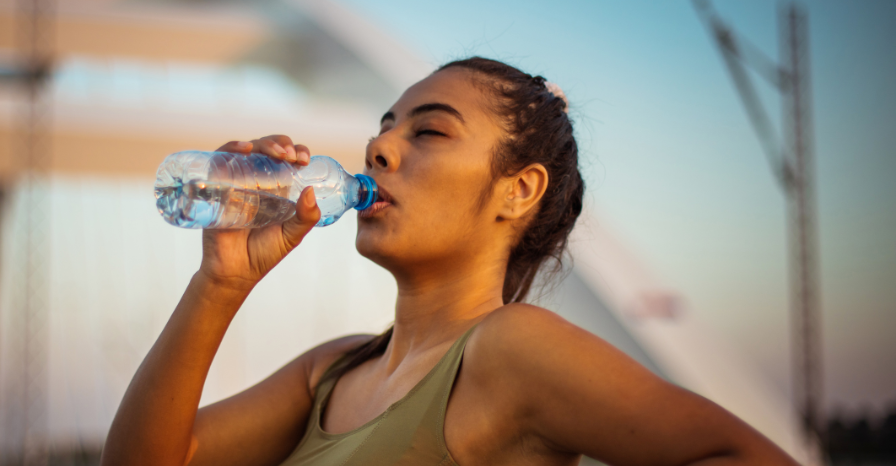
Importance of hydration for athletes
HYDRATION |Staying hydrated is important during training, racing, recovery and everyday life. Replacing fluids during intense workouts or long running sessions, may not be a top priority for many athletes. However, it is one of the most critical components of optimal performance for any athlete, as dehydration can hinder performance and even, risk an athlete’s life.
When planning your fuelling for any workout, particularly, those longer than an hour, drinking simply water is not enough. It is also important to not wait until you feel thirsty to start hydrating. Usually, if you wait until your body tells you that you are thirsty, your body is already underhydrated (and headed towards dehydration). Thus, it is best to sip on your hydration drink as early as possible to maintain optimal hydration levels.
Are you hydrated enough?
Dehydration is a condition that occurs when a person loses more fluids (such as urine or sweat) than he or she takes in. It is not uncommon for athletes to become dehydrated and not even realise it. These are few symptoms of dehydration:
- Dry mouth
- Headache
- Muscle cramps
- Bright coloured or dark urine
- Fatigue
- Rapid heartbeat & breathing
- Sudden decline in performance (eg. strength, energy, coordination, decision making)
- Fainting
Although dehydration is more common amongst athletes, over-hydration is also possible. Over-hydration happens when you drink too much water and you are not ingesting enough sodium and other electrolytes after long periods of exercise. Remember, sweat is a combination of water and salt. Your body needs both.
Over-hydration symptoms:
- Nausea
- Vomiting
- Headache
- Mental confusion or disorientation
- Light to clear urine
Tips for hydration
Monitoring your hydration levels is of high importance for optimal athletic performance. As the body cannot store water, we must constantly supply it with water to maintain our body’s functioning systems. While water contains zero calories, it is considered a nutrient, comprising 55-70% of our body’s composition. However, during intense exercise of any kind, your body undergoes tremendous physiological changes. External factors like the temperature and humidity impact your sweat rate, which in turn affect the fluid and electrolyte balance of your body.
Here are a few tips to help you stay hydrated during exercise and your daily regimen:
1. Make a daily hydration plan
Hydration is an all-day game plan. Not only must you monitor your hydration levels while exercising, but also during your day-to-day. It is very important to keep a check on how much you are hydrating on a daily basis. It is ideal for female adults to consume at least 2.7 litres of liquid per day while adult males should consume 3.7 litres [1]; 20 percent of those ounces should come from food. Do keep in mind, whether you have exercised during the day, this may require you to ingest more liquids throughout the day.
2. Hydrate with your foods
Hydration comes not only from liquids, but also from foods. Fruits like grapefruit, watermelon, strawberries, and cantaloupe are excellent for a pre-competition snacks or during your activity, as they help maintain fluid balance. You should also include fruits daily. Fruits break the monotony of just drinking water. They are also yummy!
3. Choose your sports nutrition wisely
From a sports nutrition perspective, electrolytes are essential micronutrients that have a significant on your performance. Body salts such as sodium, potassium, magnesium, and chloride replace your electrolyte losses, support muscle protein synthesis, facilitate fluid uptake, and prevent muscle cramps. When choosing your electrolyte replacement drink, consider one that is isotonic – as isotonic sports drink help with re-hydration. You can also pair them with a hypertonic drink – a drink with a higher concentration of carbohydrates which help replenish your glycogen stores. For hydration mixes, salt caps, and gels you can check out Unived’s RRUNN During Hydration Mix, RRUNN Endurance Energy Gel and RRUNN Electrolyte Salt Caps.
Remember, if you are exercising for a period of about an hour at low intensity, regular water consumption is fine. You should also not wait until you are thirsty, to start hydrating and replenishing your salts. When exercising for longer than an hour, consider opting for a hydration mix, salt caps, or energy gels to help you replenish your electrolytes and fluids, which your body needs to stay properly hydrated. Do not forget to stay hydrated throughout the day as well. The bottom line is to hydrate often to stay on top of your game!
Reference:
1. https://share.upmc.com/2016/09/7-hydration-tips-athletes/

